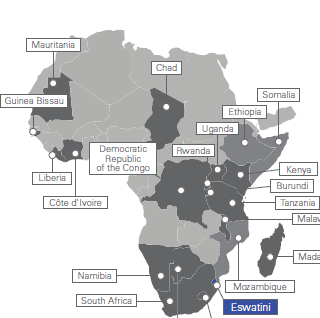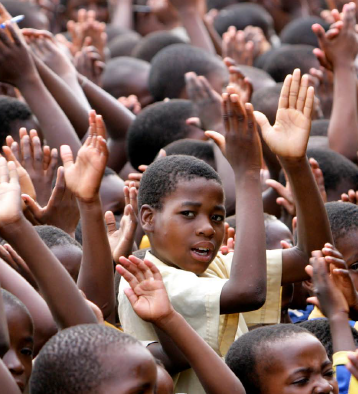The landlocked Kingdom of Eswatini, formally known as Swaziland, has a small population of 1.4 million, with 46 per cent under the age of 19 in 2017.1 While the country experienced sustained, positive economic growth during 2016 and 2017, the government is working to restore long-term stability. The small size of this country and large youth population, combined with consistent economic growth, means it has an excellent opportunity for investment in a demographic dividend. With the right government policies, investments and strong technical support, we can help to ensure that Eswatini’s children and adolescents contribute to a national vision. Schools for Africa (SFA) is a global initiative which contributes to the achievement of quality education across sub-Saharan Africa, ensuring that all children, including the most remote and marginalized children, are learning and gaining the skills for succeeding in life and work. SFA convenes individuals, businesses and governments and has a proven track record in partnering with the private sector to achieve education results for children.
Swasiland


Impact and results
Building on its long track record designing and implementing impactful education programmes, the Peter Krämer Foundation is now focused on emerging areas of work. Investment in Schools for Africa will enable the following results to be achieved by 2020:
• Support 340,000 school-going children so they gain technical and life skills critical to personal success, and contribute to future economic growth;
• Through holistic programmes, reduce by 50 per cent the number of new HIV cases in adolescent girls and young women, and reduce teen pregnancies by 75 per cent;
• Train 75 per cent of education officials on inclusive education standards; supporting the national education system to promote inclusiveness and equity;
• Improve learning outcomes at Form 3 level from 80 per cent to 83 per cent.
